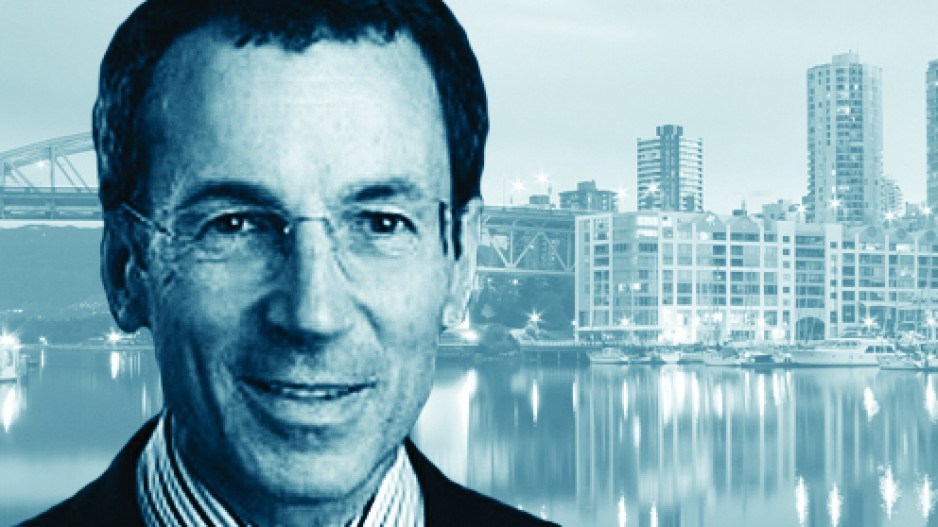Even before the writ had dropped, the crazy promises were out in full blossom – stunning in their vote-getting beauty, devastating in their long-term impact. Freeze hydro rates! Cap tolls! End tolls! Bury the bills! Dig them up later!
In moves reminiscent of last election’s sudden dumbest-move-ever call for a referendum on regional transportation funding, both the BC Liberals and NDP have done a deep dive into the stupid-policy pit. The BC Liberals have promised to cap tolls on existing and future bridges at $500 per year per person, and the NDP would get rid of tolls altogether. No, no one consulted the regional transportation plan or its guardians (TransLink and the Mayors’ Council, both created by the provincial government). Good governance was left by the side of the road, or thrown under the bus, or whatever metaphor gets you there.
Both the BC Liberals and NDP have now made improved mobility immeasurably more difficult by arbitrarily changing an unfair bridge tolling policy with no public input except perceived anger from motorists.
Just as the Mayors’ Council and TransLink are about to set up an arm’s-length commission to explore options for mobility pricing to #curecongestion (a debatable goal, but leave that aside), the province has clamped the handcuffs on. Without a measured look at the current unfair toll regime in the context of all the other transportation funding options, the opportunity to link fairer regional fundraising to reducing congestion becomes a distant haze.
This vote-now, pay-later program is even more dangerous to future taxpayers when it comes to their BC Hydro bills. Neither leading party is going to be able to keep hydro rates arbitrarily low, as they’ve pledged, without saddling our children and theirs with massive hydro increases to pay for Site C. Those costs will soar even more if the NDP doesn’t end up stopping it after a promised BC Utilities Commission review.
Voters in Newfoundland and Labrador have seen how this movie ends: the cost of their wrong-headed and over-budget Muskrat Falls dam is costing taxpayers an extra $2,000 a year on their hydro bills. Because of Site C (especially after adding in the average 27% unbudgeted increase in costs for major hydro projects), B.C. ratepayers could be facing comparable increases when the politically driven 10-year freeze on hydro rates ends in 2024.
Speaking of Site C, B.C. is swimming in surplus power, already enough to power a couple of LNG plants and ramped-up electric car use. Energy use has been declining since 2007, but we’re building the biggest public project in the province’s history based on hydro growth forecasts that have been wrong year after year. In 1981, Hydro predicted a doubling of demand in 10 years. It still hadn’t happened 30 years later. Why? Because of conservation and new energy standards. Computers used to consume the same amount of energy as a fridge when they were in sleep mode, screens radiating waste heat when on. New computers, their cold screens lit by LED lights, use almost no power in sleep mode.
BC Hydro is planning to stop introducing new conservation programs in 2020, when Site C is due online, even though meeting electrical needs through conservation (such as subsidizing energy-smart fridges, a program already ending) is one-third of the cost of generating new power. By 2036, Hydro plans to give up entirely on conservation, so important will it be to sell our surplus high-priced power to beleaguered ratepayers. B.C. residents are going to be forced to buy expensive Site C power we don’t need, while the costs of wind and solar power keep plunging.
Meanwhile, B.C. renewable companies have been dealt out of the renewable energy job bonanza – possibly the biggest job-growth sector in the world – because of Site C.
If only voters would see into these dark holes and realize what will really happen to their taxes and their commute times after today’s false promises have hit the wall. But that probably won’t happen. Both the NDP and BC Liberals are counting on that.
Peter Ladner ([email protected]) is a co-founder of Business in Vancouver. He is a former Vancouver city councillor and former fellow at the SFU Centre for Dialogue. He is chairman of the David Suzuki Foundation’s board of directors.




